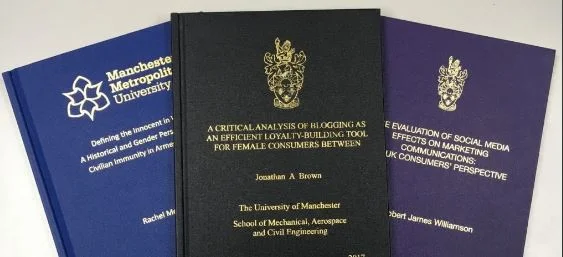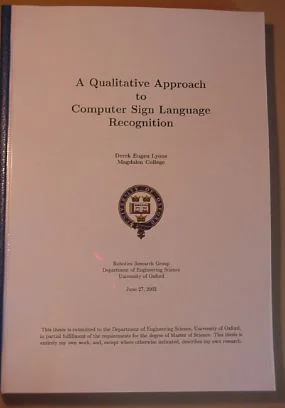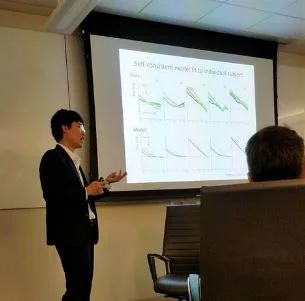How Long is a Dissertation or Thesis: In Words or Structure

A dissertation is a type of research project that students have to complete at the end of their undergraduate or post-graduate degrees. Unlike in essays, students doing a dissertation have to choose a proposition or question themselves and then present the findings to the professor.
Through a dissertation, a professor can find out a student’s independent research abilities.
A dissertation is one of the longest and most challenging projects doctoral degree programs students have to complete before graduating. When master’s students do the same research project, it is called a thesis.
How Long is a Dissertation?

The length of a typical dissertation is one of the most confusing aspects of academia. Ideally, several factors such as analysis, area of research, and discipline will dictate the length of the dissertation you are going to write.
However, the general length of a dissertation ranges from 150-300 pages.
As a student, it is important to learn the variables that can dictate the length of this important research paper.
Dissertations come from creative, qualitative, or quantitative research, but sometimes it can be a combination of both methods. These methods are the ones that will give you a clue of how much you are going to write.
Academic disciplines such as analyses of human behavior and scientific studies have short dissertations because they rely majorly on quantitative research methods. This includes fields such as biology, social sciences, and chemistry.
All this is because they follow practices that are method-based with clear paths. The same case applies to students researching in fields such as business, economics, health sciences, and psychology.
Dissertations on qualitative research have lengthy criteria and processes of analysis. Students have to add a lot of body knowledge and combine tertiary materials, images, and various documents. During the research process, there is a lot of consultation. A good example is the field of history, where one can write over 300 pages of a dissertation before getting a Ph.D.
How Long is a Thesis?
The length of a thesis varies depending on the project you are researching and the method of analysis. However, the average length is 40-80 pages, with all the references and texts included. However, this word count does not include the appendices.
Writing a master’s thesis is demanding and can take up to two semesters.
In terms of word count, a thesis ranges between 40,000 to 50,000 words. As usual, every learning institution has its expectations and rules that govern the word count of both thesis and dissertations.
How to Make Your Dissertation Long
Writing a dissertation or thesis marks the culmination of years of hard work and research. As you prepare to earn a master’s or Ph.D., the dissertation is the final hurdle that you have to tackle.

In most cases, your supervisor, fellow students, and the committee are the guiding factors that will help you write a good dissertation. Below are tips that can help you write a long one:
1. Use your Coursework
Getting a Ph.D. takes a lot of time and research. If you want to make studies easier, work smarter and not harder. Start planning earlier by gathering materials for your dissertation during coursework. Most of the course contributes directly or indirectly to your dissertation.
When you start a program, have a clue of what your dissertation is going to be at the end of your course. This makes it easier for you to start making key points and gather materials as you learn.
Whenever you take classes that have a relation to the dissertation topic you have chosen, take note of any information that will contribute to your dissertation. By the time you start writing it, you will have adequate information to write a longer dissertation or thesis.
2. Get Feedback Earlier
It is good to share your work with supervisors and instructors earlier. As you gather ideas and materials for your dissertation, share them often with your supervisors. It will be the right time for corrections and directions that will make your preparation even better.
Supervisors can explain most of the difficult sections of a dissertation. This can save you the hustle of redoing a whole chapter, especially when the due date is getting closer.
3. Move Around
A dissertation consists of several parts and stages. Others may be easier, while others take a long time and can be difficult to tackle. The best approach is to have an outline of the argument for the chapter.
After this approach, you can tackle straightforward sections that are easier and leave the difficult parts that will likely take you a lot of time. You can then return to the difficult parts with more sureness to tackle them.
4. Do not Spend too much Time Reading
The literature review is arguably the worst stumbling block when writing your dissertation. This section analyses what previous researchers have written about your topic of choice.
At this point, you do not have to spend time reading everything that others have said about your topic. This part is only in the dissertation as a way of giving context to your research work as a scholar.
Focus on what the literature review relates to your research, and don’t try to show the committee that you know everything. If the material you are reading for the literature review has nothing to do with your dissertation, don’t waste time on it. This is the only way you can create time for more meaningful sections that will make you write a longer dissertation or thesis.
How Long is a Dissertation Defense?

A dissertation defense takes approximately two hours. This usually depends on the department and the field of study you have been researching. The best thing to do and be in a safe line is to plan for a presentation of at least two hours.
It is ample time to present an outline of the problem that you have addressed in your research and all the methods you applied. You will also present your findings in the dissertation defense.
For starters, you have to give a proper introduction of yourself. This should be followed by a presentation of the summary of your work. During the two hours, there are likely to be a lot of interruptions from the committee, but ensure you answer all the questions appropriately.
The committee will then meet privately to deliberate on the presentation you have made. In the defense meeting, the committee usually analyzes the merits of your dissertation. They gauge your abilities to explain the results of your research and how you handle the implications.




